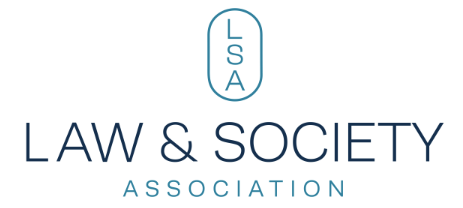CRN 28- New Legal Realism
Schedule of Events
Law’s Politics: The Politics of (De)legitimating Knowledge Claims in Legal Processes
(Friday, 4:45 PM – 6:30 PM)
Chair(s): Hilary Parsons Dick, Arcadia University
Discussant(s): Susan Bibler Coutin, University of California, Irvine
Description: The panel examines how legal actors and advocates manage the law-politics boundary, as well as how they help produce that very distinction by translating knowledge from academic research and advocacy work into legal evidence. Boundaries between law and politics are the result of power relations and reflect visions of the relationship between law and society. In light of the law’s potential to constrain, as well as enable state violence, the papers inquire into the ethical and political dimensions of why and how knowledge is mobilized in legal processes. Case studies include expertise in migration cases, the use of scientific evidence in environmental claims, and the ways that human rights and administrative law judgments draw distinctions between legitimate legal intervention and the ‘politicization’ of law.
Presentations:
1. Evidence of the Invisible: Aquifers, Science, and Law in Costa Rica
Andrea Ballestero, University of Southern California
2. Human Rights as Law and Politics
Jessica Greenberg, University of Illinois at Urbana-Champaign
3. Judgments and the Scope of Law
Anya Bernstein, The University of Connecticut School of Law
4. Seeking Justice as a Migration Scholar: Auto-Ethnographic Lessons for Capturing ‘Impact’
Jill Alpes, Human Rights Centre, University of Ghent
*************************************
Supreme Courts Lawyers: Comparative Insights
(Saturday, 10:00 AM – 11:45 AM)
Chair(s): Liora Israel, Ecole des Hautes Etudes en Sciences Sociales
Participant(s):
Laure Blevis, University Paris Nanterre / ISP
Scott Cummings, University of California, Los Angeles
Jonathan Klaaren, University of the Witwatersrand, Johannesburg
Lynn Mather, University at Buffalo Law School
Description: The purpose of this roundtable is to reflect on the role of lawyers before supreme courts from a law and society perspective. Supreme or constitutional courts, their judges, and the decisions they make are at the heart of legal analysis, and, at the same time, the legal profession is one of the major focuses of socio-legal research. However, the role of lawyers, often specialized, before the highest courts, remains under researched. This round table aims to remedy this shortcoming, which is found in most national research traditions. The participants will seek to identify the challenges and prospects for the development of research on supreme court lawyers, drawing on national and transnational examples.
*************************************
LPE Approaches to Economy, Society, and Trade
(2:45 PM – 4:30 PM)
Chair(s): Caoimhe Ring, University of Oxford
Discussant(s): Kim Vu-Dinh, Mitchell Hamline School of Law
Description: This panel includes papers that take a law and political economy approach to traditional economic concepts such as price discrimination, debt instruments, and small- and medium-enterprises, and legal institutions such as property rights, administrative law, and investor-state arbitration. The papers on this panel highlight the need to confront existing inequalities and power imbalances in economic systems. The panel explores the impact of personalized credit pricing on marginalized populations and proposes a framework to address distributional impacts directly. It also examines the institutional frameworks and narratives that perpetuate credit access problems for women-led small and medium enterprises.
Presentations:
1. Credit Where Credit Is Due: Contesting the Debtor Status of Cities
Nketiah Berko, Yale Law School
2. How Much Does the Rule of Law Matter for International Trade? The Impact of Rule of Law-Related
Investor-State Arbitration Cases on Bilateral Sectoral Trade in the European Union Between 2004 and 2019
Janka Deli, Stanford Law School
3. Revisiting Rent Theory: Taxing Imputed Returns to Land as an Affordable Housing Policy
Faisal Chaudhry, University of Massachusetts
*************************************
New Legal Realist Perspectives on Judges
(Saturday, 2:45 PM – 4:30 PM)
Chair(s):
Heinz Klug, University of Wisconsin, Madison
Discussant(s):
Heinz Klug, University of Wisconsin, Madison
Description:
This panel offers perspectives on the meaning and implications of the work of judges as they (i) craft legal
opinions through their engagement with other legal actors; (ii) police the boundaries of the judicial and
executive branches; (iii) engage in rhetorical work in support of justice through supranational legal bodies;
and (iv) serve as key constituencies in the ongoing push for greater equality in access to civil justice.
Although employing multiple methodologies and coming from diverse settings, the works are united by
New Legal Realist concerns with law in action and bottom-up perspectives.
Presentations:
1. Access to Civil Justice and Inequalities in Brazil: A Literature Review
Julia dos Santos Drummond, Sao Paulo Law School – Fundacao Getulio Vargas
Luciana Gross Cunha, São Paulo Law School – FGV
2. Challenging Theories of Adjudication by Paying More Attention to Supreme Court Lawyers: A French
Example
Liora Israel, Ecole des Hautes Etudes en Sciences Sociales
Laure Blevis, University Paris Nanterre / ISP
3. Protesting State Injustice: The Rhetorical Work of International Courts
Sara McKinnon, University of Wisconsin-Madison
4. Three Ways to Deconstruct Regulation and Undermine Democracy in the States
Glen Staszewski, Michigan State University

